The increasing frequency and intensity of climate-related events pose significant challenges to the UK healthcare system. Extreme weather events, rising temperatures, and shifting disease patterns threaten the health of the population and strain existing and future healthcare resources. This report outlines strategic recommendations to enhance the resilience of the UK healthcare system to climate change, focusing on adapting infrastructure, workforce preparedness, and community engagement.
Recommendations
1. Provide sustainable funding
- Allocate ring-fenced multi-year funding for climate adaptation initiatives within the NHS budget.
- Explore and enable public-private partnerships to finance large-scale infrastructure upgrades.
2. Strengthen healthcare infrastructure
- Conduct climate risk assessments for all NHS facilities to identify vulnerabilities at the local level.
- Urgently undertake existing repairs required and retrofit existing healthcare buildings with climate-resilient features, including improved insulation, flood defences, and renewable energy systems.
- Ensure all new healthcare facilities meet high environmental and climate resilience standards.
- Prioritise integration and expansion of high quality green spaces within healthcare estates.
- Ensure collaboration of DHSC, NHS and ICBs with mayoral and local authorities to integrate climate considerations in any future planning decisions.
3. Enhance workforce preparedness
- Integrate climate adaptation training into medical, nursing, pharmacy and allied health professionals curricula.
- Ensure that NICE and SIGN provide clear guidance for clinicians on managing climate-related health risks and incorporating sustainability into clinical practice.
- Develop rapid response protocols for climate-induced health emergencies.
- Establish support systems for healthcare workers during extreme weather events to maintain service continuity.
4. Promote public health resilience
- Expand community-based programmes to educate the public on climate-related health risks and preventive measures.
- Enhance surveillance systems to monitor and respond to emerging health threats like vector-borne diseases.
- Ensure collaboration of DHSC, NHS and ICBs with local authorities to create heatwave and flood response plans.
5. Foster cross-sectoral collaboration
- Strengthen partnerships between the NHS, local councils, and environmental agencies from planning to implementation stages to align climate adaptation efforts.
- Leverage technology and data-sharing platforms for better coordination during crises.
- Advocate for integrated urban planning to reduce health risks from climate impacts.
6. Integrate climate adaptation into health policies
- Mandate the development of a Health National Adaptation Plan (HNAP) across each of the devolved nations, outlining specific strategies for the healthcare sector to respond to climate risks.
- Align NHS climate resilience initiatives with the UK Climate Change Risk Assessment (CCRA) and other national climate policies to streamline resources and efforts.
- NHS organisations should have climate change response plans that cover both emissions reductions and adaptation planning; ICS Green Plans in England, Climate Change Response plans in Wales, and Sustainability Plans in Scotland.
7. Strengthen research on climate adaptation
- Invest in research to quantify climate health vulnerabilities and guide evidence-based policy-making.
- Invest in research to identify cost-effective adaptation strategies.
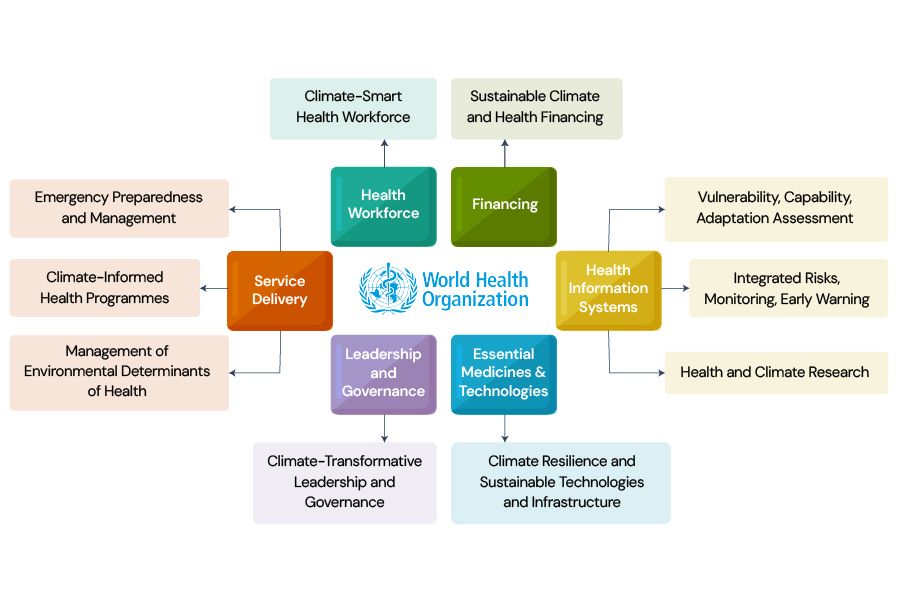
4-page policy brief
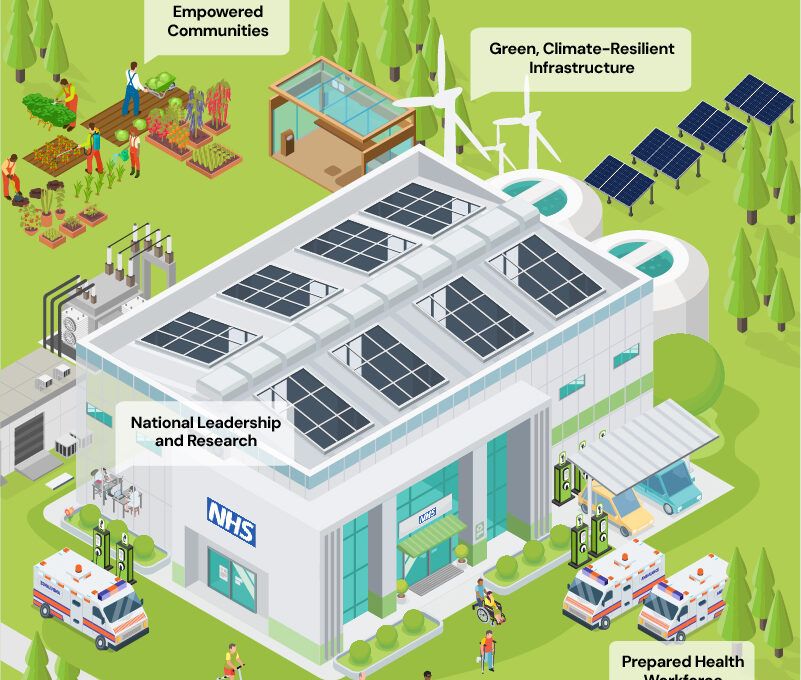
Infographic: Vision
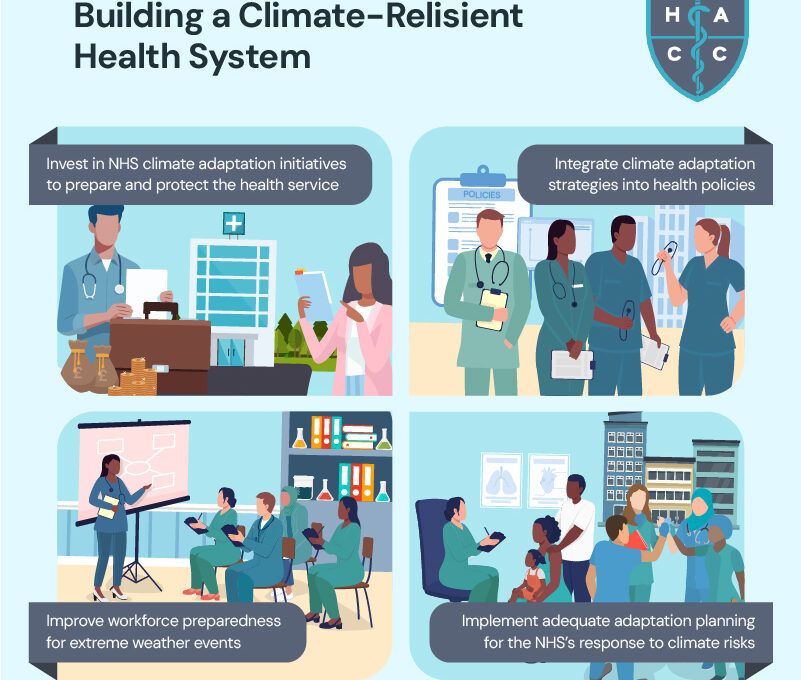
Infographic: Implementing
Assessment of the UK health system against the WHO building blocks for a climate resilient health system
Leadership and Governance
Workforce and delivery
Health information system
Essential medicines and technologies
Climate and health financing
The WHO building blocks
Vulnerabilities of the UK health system to climate impacts
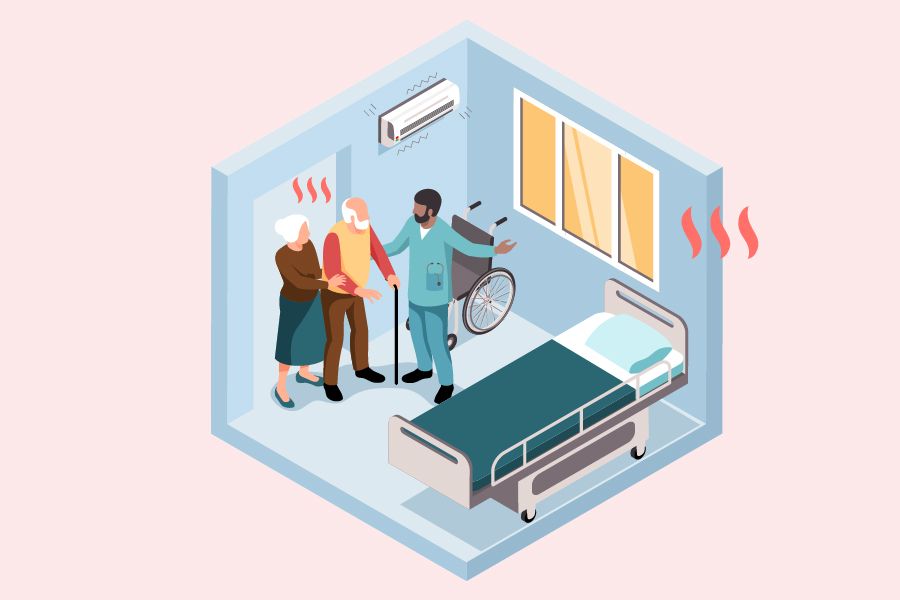
Heat

Flooding
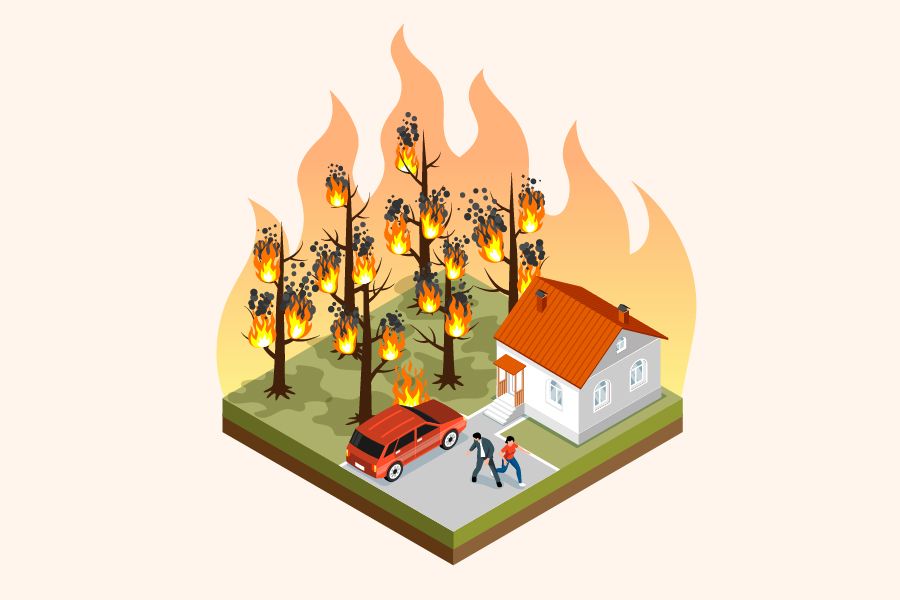
Wildfires

Drought

Food and water insecurity

Infectious diseases
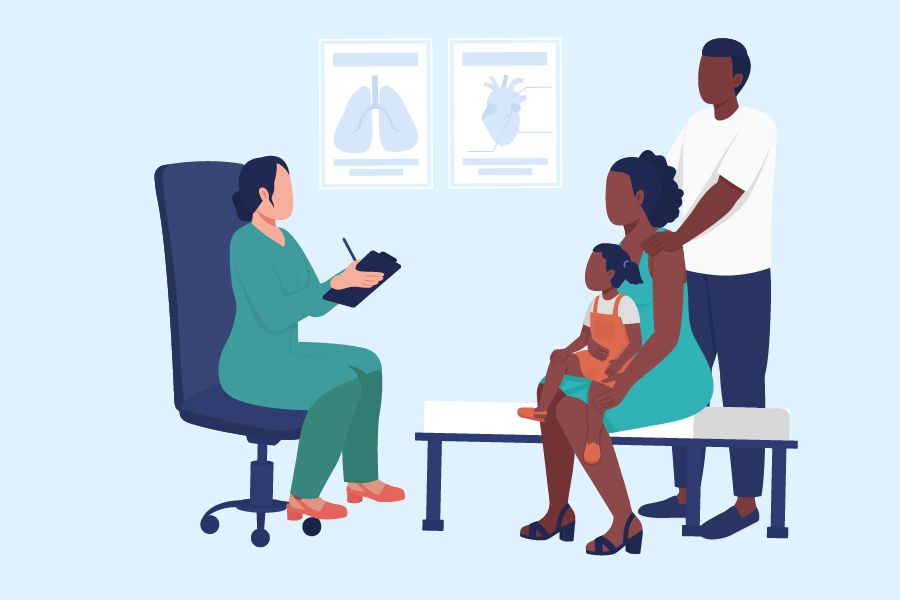
Mental health

